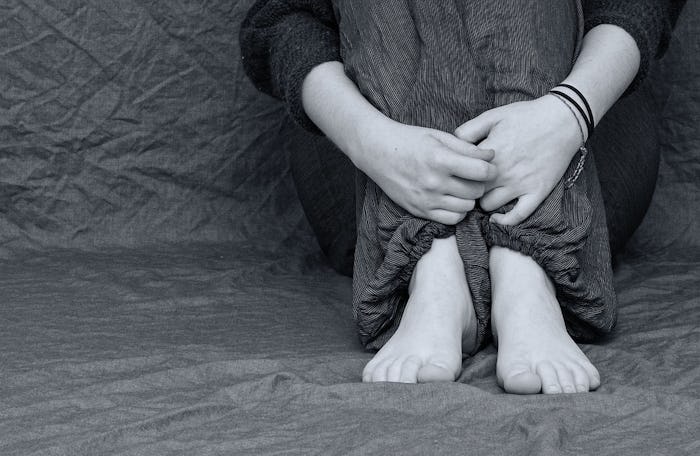Life
Women With This Condition During Pregnancy Are More Likely To Suffer From Domestic Violence
Factors such as age, race, and socioeconomic status as well as relationship history and even pregnancy have long been known to contribute to an increased risk of abusive behaviors at home. And now, according to new research, scientists have found that an incurable medical condition during pregnancy also makes women more likely to suffer from domestic violence after their baby has been born.
According to a new study published in this month’s issue of AIDS and Behavior, pregnant women who have been diagnosed with HIV — a virus that attacks the immune system — are twice as likely to become a victim of domestic violence than women who have not been diagnosed with the disease.
The study's researchers found the troubling link among women who have not had a history of violence at the hands of an intimate partner and it starting after the birth of their child. Meanwhile, there was no significant change for women with or without HIV "who had already experienced violence in their relationship," according to a press release.
Ali Groves, Ph.D. — a lead researcher of the study from Drexel University in Philadelphia, Pennsylvania — told News Medical that the study's findings are "valuable to have a picture of who is at risk." She told the website:
This suggests that something about the HIV positive diagnosis is bringing stress into the relationship for those without a history of intimate partner violence. On the other hand, in those with a history of intimate partner violence, there was no difference in risk between HIV positive and HIV negative women. This suggests that the HIV positive diagnosis may not be new source of anger or increased relationship stress, as it may have already been suspected.
As News Medical reported, the researcher came to this conclusion after analyzing data from an urban township in the KwaZuluNatal Province of South Africa — the province that has been most affected by HIV in the country, according to UNAIDS. The study included answers from 1,015 women who were in steady relationships — six months or more — when the data was collected.
"We believe this research will translate beyond South Africa because relationship factors that contribute to HIV-positive women's vulnerability to intimate partner violence are not unique to just that country," Groves explained in the press release.
Although the sample size was relatively small, there was indeed a correlation and it should be addressed. Not only can domestic violence lead to physical injury and psychological trauma, it can sometimes, in severe cases, lead to death, according to the National Coalition Against Domestic Violence.
"The devastating physical, emotional, and psychological consequences of domestic violence can cross generations and last a lifetime," according to the NCADV.
On top of living with a devastating diagnosis — for which no cure exists — as this study found, new moms with HIV are more likely to suffer even more. And with domestic violence, awareness and intervention are key in order to stop these cycles of abuse. Know the signs and warnings and, if you or a loved one is in danger, seek help at this website.
